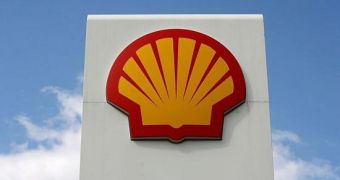In a press release issued this January 7, Anglo-Dutch multinational oil and gas company Shell says that, after giving things much thought, it has finally decided to carry out drilling operations in the Great South Basin, i.e. an area mainly of sea located south of New Zealand's South Island.
The company is currently unable to say when exactly drilling activities will commence. However, it says that, should things go as planned, a test well will be drilled in about two years' time.
“After careful consideration, the Great South Basin joint venture parties Shell New Zealand, OMV New Zealand Ltd and Mitsui E&P Australia Pty Ltd have made a decision to take up the option to drill an exploration well in the PEP 50119 block,” Shell writes on its website.
“The timing of the drilling program will be determined following detailed planning and will most likely target the early 2016 summer period,” it adds.
According to Radio New Zealand, the test well for natural gas that the multinational oil and gas company wishes to drill in the Great South Basin will cost about $200 million (almost €147 million).
The well will sit at a distance of about 150 kilometers (about 93 miles) offshore of Dunedin, in 1,350 meters (roughly 4,429 feet) of water.
It will target a natural gas field whose size is comparable to that of the Maui field off the coast of Taranaki, a region in the west of New Zealand's North Island.
The Maui field sits in the Tasman Sea. It was discovered in 1969 and, for the time being, it is the largest gas, natural gas condensate and oil field in New Zealand.
As was to be expected, there are some who are not all that happy about Shell's plans to carry out drilling operations in the Great South Basin.
Thus, The New Zealand Herald tell us that, when hearing about the company's announcement, Gareth Hughes, the spokesman for New Zealand's Green Party, warned that, “This is a particularly risky environment.”
“We saw one of the world's largest oil companies Exxon Mobil pull out in 2010 because they said the conditions were too harsh and the location remote. Those conditions still exist for Shell,” he added.

 14 DAY TRIAL //
14 DAY TRIAL //